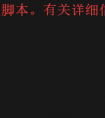文章目录
前言1、root指令2、alias指令总结:
前言
nginx指定文件路径有两种方式root和alias,这两者的用法区别,使用方法总结了下,方便大家在应用过程中,快速响应。root与alias主要区别在于nginx如何解释location后面的uri,这会使两者分别以不同的方式将请求映射到服务器文件上。
1、root指令
用于指定服务器文件的根目录,nginx会将location后面的uri与root指令指定的路径拼接起来,作为最终的文件路径。例如:
location /dist/ { root /usr/share/nginx/html;}root是拼接
当请求/dist/static/css/style.css时,nginx会将其映射到/usr/share/nginx/html/dist/static/css/style.css文件上。
2、alias指令
用于指定服务器文件的别名,nginx会将location后面的uri替换为alias指令指定的路径,作为最终的文件路径。例如:
location /dist/ { alias /usr/share/nginx/html;}alias是替换
当请求/dist/static/css/style.css时,nginx会将其映射到/usr/share/nginx/html/static/css/style.css文件上。
因此,root和alias的主要区别在于nginx如何解释location后面的uri,这会使两者分别以不同的方式将请求映射到服务器文件上。
总结:
root指令:
root指令用于定义根目录,即服务器上所有请求的基础目录。
当使用root指令时,Nginx会将请求的URI附加到根目录路径后面来查找文件。
例如,如果设置了root /usr/share/nginx/html;,并且客户端请求http://example.com/index.html,Nginx会在/usr/share/nginx/html目录下寻找并返回index.html文件。
alias指令:
alias指令也用于定义一个目录,但它允许你为请求的URI提供替代路径。
使用alias指令时,Nginx会将匹配到的部分路径替换为指定的目录路径。
例如,如果设置了location /images/ { alias /usr/share/nginx/html; },并且客户端请求http://example.com/images/photo.jpg,Nginx会将/images替换为/usr/share/nginx/html,然后在该目录下寻找并返回photo.jpg文件。







